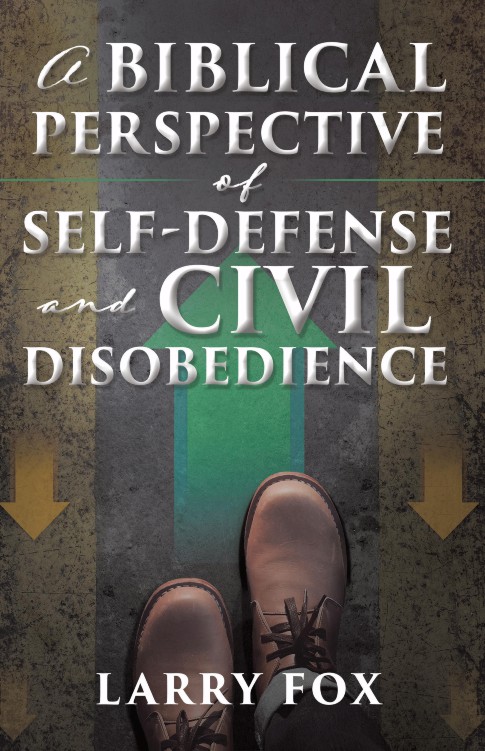A Biblical Perspective of Self-Defense and Civil Disobedience
Second Edition
Order now: Amazon, Barnes & Noble
This book is not for casual reading or entertainment. It’s an in-depth Bible study for gaining insight on two very controversial topics.
Contents: Self-Defense
- Old Testament Background
- Is Killing a Person Always Murder?
- Capital Punishment
- Use of Deadly Force
- New Testament: Different Purpose and Emphasis
- Jesus’ Responses to Danger
- Jesus’ Teaching
- The Apostles’ Responses to Danger
- The Apostles’ Teaching
- Godly Character
- Peace Isn’t Always Possible
- Application to Self-Defense
- The Most Important Factor
- Conclusions
Contents: Civil Disobedience
- Old Testament Background
- Submission to Authority
- New Testament Examples
- What About Revolt?
- Civil Disobedience That Honors God
- Conclusions

Read an Excerpt
Read an excerpt from Part Two, “Civil Disobedience.”
Product Formats
- paperback, 6″x9″, 117 pages
- ebook
Book Reviews
A review by O.W. Shumaker, author
Comments from Readers
(The following are responses to rough drafts of this book posted online)
- “I just googled in and found your ‘A Biblical Perspective of Self Defense’ study. I didn’t expect to find such a well-balanced, biblically based analysis on my first hit. Well done!” T.L. [emphasis added]
- “Having been in security and law enforcement for over 30 years and being a believer in our Lord and Savior Jesus Christ, [A Biblical Perspective of Self Defense] has been a topic of great interest and importance to me…. Your teaching [is] a source of wisdom, logic and balance … carefully considering each element in a thoroughly analytical biblical perspective…. I think it should be must reading for every Christian.” J.M. [emphasis added]
- “I just read (most of) your excellent article on Christians and self-defense. I agree with the other comments that it is the most thorough and steady treatment of that topic that I’ve seen. Bravo.” J.L. [emphasis added]
- “I have found several of your articles very helpful over the course of the last several weeks as I have been teaching a Sunday School class on issues relating to government, a biblical response to apparent godlessness in government, our involvement in government generally and similar topics. Having reviewed literally dozens of websites with material on these and related issues, I have found [A Biblical Perspective of Civil Disobedience] to be solidly biblically based, sound, insightful and coherent — quite unlike the diatribes and ramblings of many others.” R.S. [emphasis added]
Ebook Readers’ Highlights (first edition)
- We must be trusting and dependent like little children toward Him, and He must be our strength and safety.
- God also sanctioned the use of deadly force by an individual in certain circumstances.
- God clearly authorized the use of deadly force by the nation of Israel and by individuals under certain conditions.
- The New Testament, on the other hand, focuses primarily on repentance and spiritual development rather than physical existence.
- If Jesus were a pacifist and opposed to any use of weapons, why would He instruct His disciples to have them (see Luke 22:36-38)? Jesus told Peter not to use his sword because (1) Jesus must be arrested, and (2) Peter was acting in the flesh rather than recognizing God’s will.
- He instructed His disciples to get a sword, even if they had to sell their cloak to buy one. They had two swords among them, and Jesus said that was sufficient. He clearly was not opposed to the possession and use of swords, yet He indicated two swords were sufficient for the 11 disciples; they obviously were not heavily armed by today’s standards.
- Jesus avoided an area because the people there would try to kill Him. He was capable of avoiding capture or escaping a mob, yet He chose to avoid danger this time.
- By implication, it’s not wrong to fight about matters of this world.
- Jesus took prudent measures to protect Himself from harm until it was time for Him to die.
- The shepherd risks his life by combating wild animals that threaten the flock. A pacifist or fearful shepherd would soon have no flock.
- … protection and defense are appropriate, especially when providing it for others but also for oneself.
